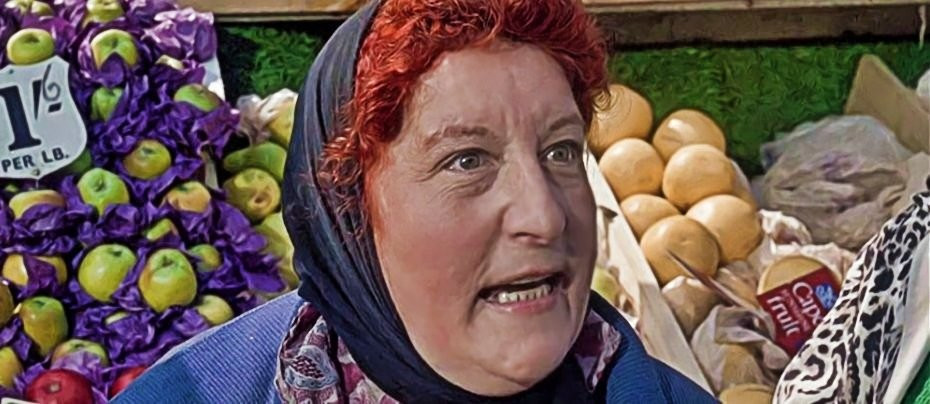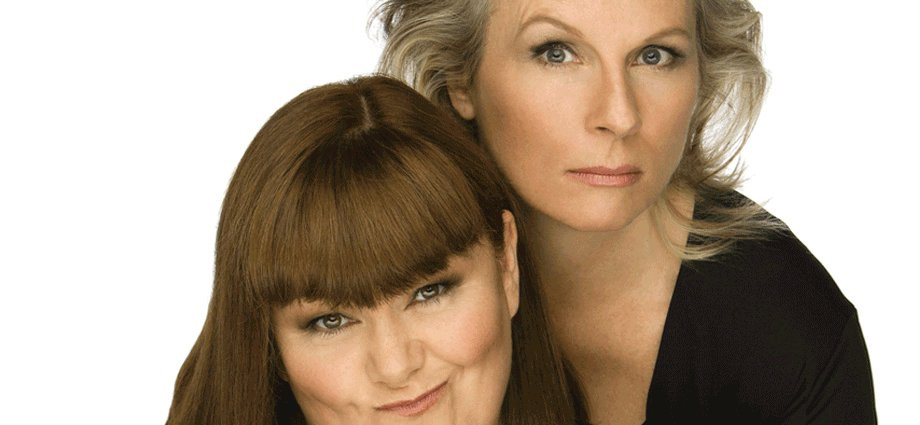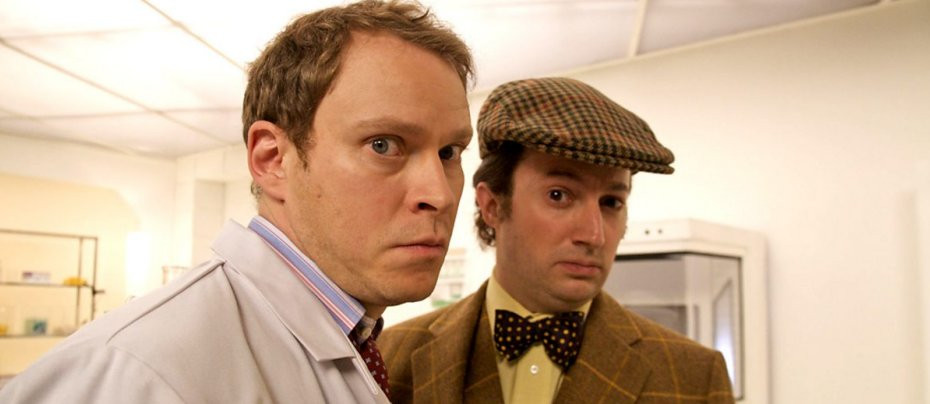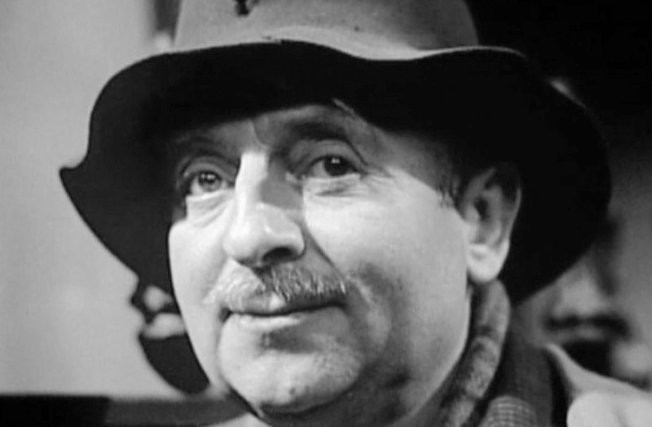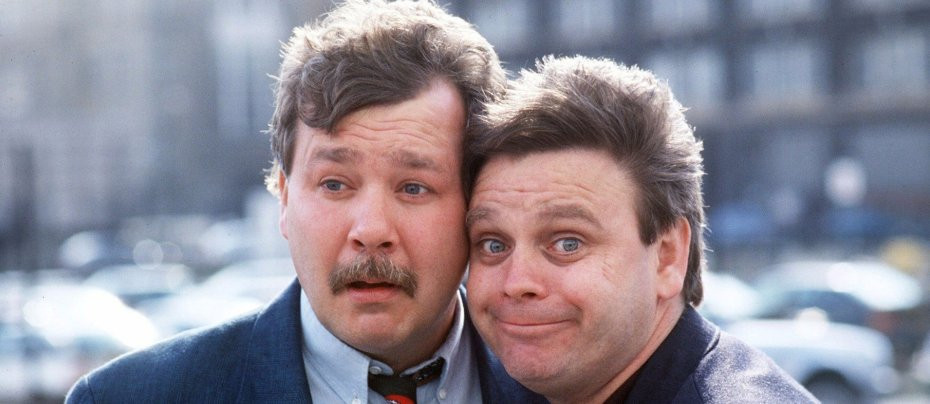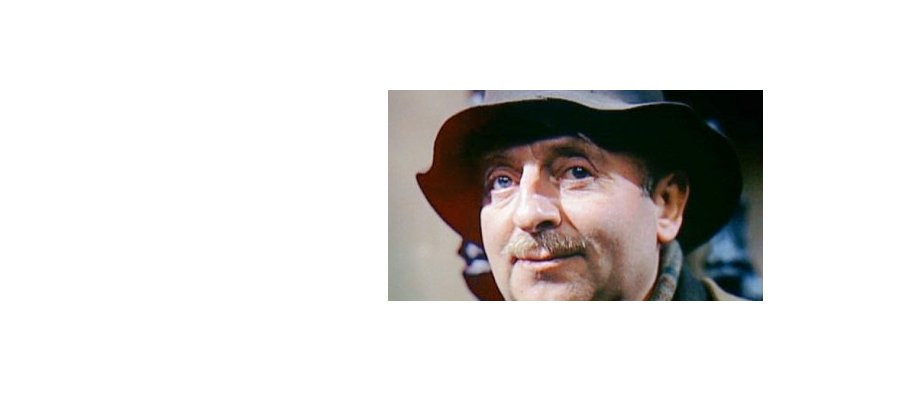
Arthur Haynes
Television, amongst its many roles, has introduced its audience to a seemingly unending parade of personalities and entertainers down the years. Some have thrived and prospered, carving for themselves an indelible place within the hearts and minds of entire generations. Some have blazed brightly, only to burn out quickly and deservedly vanish without trace or thought from the public consciousness. And then there are those whose talent and popularity once made them the favourite of millions, only to ultimately find themselves outstripped by changing tastes and unfairly forgotten except by the small numbers who study broadcasting history and recognise true brilliance when they see it.
Arthur Haynes belongs within that select, long and unsung latter group.
Arthur Haynes was born in Hammersmith, London, in May 1914, the only child of a baker. At school he showed a flair for art so his parents, who were not particularly well off, scraped around enough money to send him to Chiswick Polytechnic Art School to train as an architect. However, when Arthur sat down with them and worked out just how much the course, the equipment he would have to purchase, and his general living expenses would cost him, it worked out to around £2,0000 -quite a hefty sum of money in the 1930's. It was simply beyond their means. So on leaving school Arthur started work with the local bus company as a conductor. Perhaps Arthur had designs to make enough money to eventually go to the Polytechnic, it's not clear, but at the time he was working on the buses he also started going around the local pubs and clubs doing a stand-up comedy routine, in order to increase his income. Then an offer came along of another job; twelve and sixpence a week to work in a furniture store as a clerk. Arthur left the bus company and took up his new position. However, it didn't last. "After that I was a mate." Said Arthur. "I was everybody's mate. Plumber's mate, painter's mate, carpenter's mate and so on."
That's how it was for Arthur when, in September 1939, war was declared. He went to see George Black who was booking acts for the army show Stars in Battledress, but with Arthur not being an established performer yet nor a name that anyone would recognise, Black turned him down. However, George Black did agree to keep him in the unit as a props assistant and bit player, due to the fact that Arthur had already been turned down for active service on medical grounds. Ken Morris who would later supply musical spots on Arthur's TV series remembered those Army days:
"My first meeting with Arthur was soon after D-Day, when he was a member of a company putting on a show for the troops on an improvised stage in the middle of a muddy French field. I was in the show that was to take over from his, and we were late. You should have heard his language!" By this time, Arthur had got a chance to team up with the established comedian and major crowd puller Charlie Chester, and when the war ended he felt confident enough to try for a full time solo career in show business. Unfortunately, nobody wanted him.
Arthur had to make do with being a member of Charlie Chester's gang in a series of radio shows, until finally George Black came to the rescue once again and offered him a run at one of Black's theatres in Blackpool. After the first show Arthur ran round to Black's office and asked his ex C.O. what he thought of his act now. "I still think it's terrible!", replied Black.
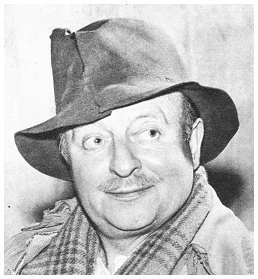
Arthur worked hard at trying to improve his act, and indeed, he must have been successful because it was here, in 1956, that Associated Television approached Arthur to appear in a new series entitled Strike a New Note. ATV introduced Arthur to a new, up and coming scriptwriter by the name of Johnny Speight. Arthur: "The producer of Strike a New Note gave me the script and asked me if I thought I could do it. I was one of four newcomers they wanted to try. I took the script home and read it. When I finished I said to my wife, Queenie, "This is going to be my big break." I realised immediately that Johnny Speight's style of writing suited me to a tee. It was as if Speight had written the programme especially for me. Well, to cut a long story short, I did the show and it must have proved a success because they asked me to do a series. In March 1959, after some time in the Strike a New Note and Get Happy shows, I was given my own series with Johnny Speight as scriptwriter. He's written for me ever since."
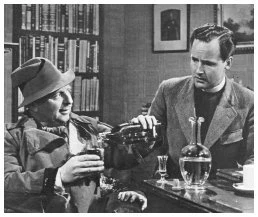
Nicholas Parsons became regarded by many as Haynes' straight man throughout the peak of Arthur's career. "Arthur and I came together by chance but found a natural rapport," Parson's would later write in his own book My Life In Comedy. "...(We) read all the sketches sent in by aspiring young comedy writers. Together we chose the best, and, without realising it, we were becoming partners in a double act: the comic and the straight man." Parsons played a number of establishment figures such as a doctor, lawyer or policeman and also broke new ground in portraying a character that had previously been considered taboo in comedy; the church vicar. It was considered bad taste. "We proved that you could create a comedy situation as long as the vicar was portrayed as a genuine and sincere person." It was a far cry from Dick Emery's later characterization of The Vicar as insincere and self-serving.
The success of the new partnership did not go unnoticed by ATV's programme makers and it wasn't long before Haynes was offered his own TV series. But Parsons thinks he may have missed a bit of a trick. "(My agent) should have pushed for naming the show Haynes and Parsons instead of The Arthur Haynes Show with Nicholas Parsons. ...but we were a good team and I was happy in terms of my contract. The billing was never a major issue to me."
The Arthur Haynes Show began, according to Parsons, modestly, going out at 1015pm and taking time to build up a loyal following. Critical review was good and after a while the show was moved to prime-time. By the early sixties The Arthur Haynes Show was firmly established as one of ITV's most popular programmes.
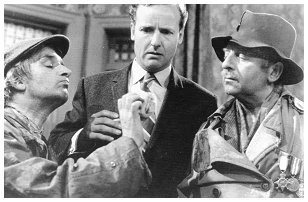
With Johnny Speight writing and Haynes performing the two of them built up a collection of characters, including Oscar Pennyfeather, a mischievous character that never actually spoke. Instead, Nicholas Parsons did a voice over as Oscar's easily overcome conscience. However, Arthur's most easily recognisable and best loved comic creation (for he specialised in the 'social nuisance' or manipulative style of character), was the bemedalled tramp who took great pride in telling all who would listen how he had fought for his country whilst being 'up to me neck in muck and bullets.' Arthur became one of British TV's first star comedians and was a huge success. His series dominated the ratings for years and led to an appearance on the Royal Variety Performance in 1961 and being voted Independent Television Personality of the Year in 1962. Alongside Arthur on his TV series were Dermott Kelly, Nicholas Parsons, Tony Fane, Freddie Frinton, Jack Parnell and Patricia Hayes.
Haynes took fame very much in his stride. "Nearly all my public are working class people and my humour is of a type they can appreciate and understand." Haynes noted in 1962. "If I attempted to assume a new personality or sophistication, it would be detected immediately. Anyway, I couldn't do it. It wouldn't suit me." Arthur Haynes was an unassuming man who led a modest life-style. One of the few luxuries that he allowed himself was a Mercedes Benz with the registration number OP1 (in honour of the character that made him famous -Oscar Pennyfeather).
During the height of Arthur's popularity his main writer, Johnny Speight, had suggested a change of style. Speight was concerned that he might run out of fresh ideas for sketches and put to Arthur the idea of doing a sitcom. The storyline that Speight came up with was based on Arthur's Mr Know-All character. In the series Arthur's character would live with his wife played by Patricia Hayes and daughter played by Wendy Richard. The main conflict would come from his next door neighbour, an Establishment figure played by Nicholas Parsons. Everyone seemed keen on the idea except Arthur who pulled the rug from under it. Speight eventually took the format and turned it into Till Death Us Do Part, one of the most controversial shows of the 1960s. Arthur carried on with the sketch-show format. In 1963 during a season at the London Palladium, Arthur had a heart attack. His place was taken by Tony Hancock until Arthur was well enough to return to work. The heart attack was not deemed a serious one and Arthur soon turned up his workload and following what was then the longest-running variety show ever staged at the Palladium he went straight into another television series. Then, in 1964 Arthur dropped a bombshell on Nicholas Parsons by suggesting they break up what was one of the most successful partnerships in light entertainment. Parsons accompanied Arthur on one last tour fulfilling a contract in America and an appearance on The Ed Sullivan Show.
Following Parsons' departure Arthur did a new series with Tony Fayne alongside him. The viewing figures were disappointing and the resulting summer season at Blackpool's famous Winter Gardens theatre reflected this with poorer than expected ticket sales. Around the same time Arthur was complaining of pains in his chest but also refusing to seek medical advice. Arthur was finally persuaded by his agent to do a sitcom. In November 1966 rehearsals began but it soon became apparent that the format was not working for him. One morning, three days into rehearsals, Arthur had another heart attack. This one proved to be fatal. He was 51 years of age.
Today, more than fifty years after his untimely death, Arthur's long overlooked contribution to British television comedy history deserves its rightful place under the spotlight following too many years languishing within the shadow of neglect. But with the long-overdue release of The Arthur Haynes Show in June 2011 (by Network DVD) a new generation was be able to see why Arthur Haynes was an original and a consummate professional who fully deserves his place among the TV greats.
Published on February 20th, 2019. Written by Laurence Marcus. Sources: ATV Television Show Book - Nicholas Parsons' autobiography My Life in Comedy for Television Heaven.


